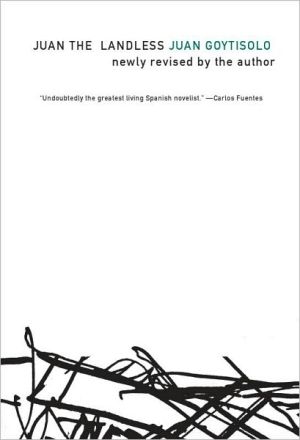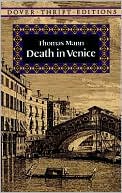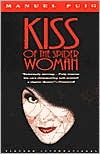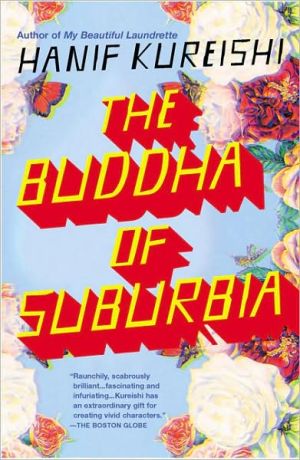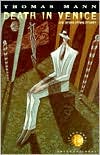Juan the Landless
Juan Goytisolo has radically revised his masterpiece Juan the Landless for this new translation by renowned translator Peter Bush. Marking a turning point in Goytisolo's work from outright hostility for his homeland towards a growing appreciation and celebration of the many Muslim contributions to western culture, Juan the Landless is a desperate, sympathetic, erotic, and anarchic attempt by the greatest living novelist from Spain to reconcile himself to seeing the world as a man without a...
Search in google:
Juan Goytisolo has radically revised his masterpiece Juan the Landless for this new translation by renowned translator Peter Bush. Marking a turning point in Goytisolo's work from outright hostility for his homeland towards a growing appreciation and celebration of the many Muslim contributions to western culture, Juan the Landless is a desperate, sympathetic, erotic, and anarchic attempt by the greatest living novelist from Spain to reconcile himself to seeing the world as a man without a home, without a country.The Barnes & Noble ReviewOriginally published in 1975, Juan the Landless is usually referred to as the third book of Goytisolo's so-called Álvaro Mendiola trilogy which includes Marks of Identity (1966), and Count Julian (1970). (Some scholars debate whether it should be called a trilogy at all.) The books needn't be read sequentially, but the first sets the stage for the events in the succeeding volumes by unveiling the contradictory ramifications of the Spanish Civil War, and the Franco dictatorship, for people of varying social castes.
\ Publishers WeeklyThis reworked and streamlined version of Goytisolo's 1975 novel spins the reader through an angry, prickly catalogue of Spanish colonialism and slavery. Goytisolo writes in wildly run-on sentences (colons are heavily used), offering an exhaustive litany of evils, beginning with a Cuban sugar plantation where "little Adelaida plays the violin and an inspired young Master Jorge melodramatically thuds the ivories... the little mulatto absorbed in his cameo role as a cherub tirelessly fends off flies." Gradually it becomes clear that the "you" addressed here is a descendant of the slaves of this sugar plantation. In exile from the despised mother country, "you" searches for refuge in a teeming world, traveling from North African souks to Manhattan, where, "inspired by King Kong's grandiose majesty, you now sing of the abominable, the aberrant, and the illicit." The narrative ruptures into parodies of medieval Latinate and segues into a blistering attack on authoritarianism and the cult of personality (read: Franco). In the end, transformation is only achieved through the derangement of language: hats off to Bush for a striking translation. (July)\ Copyright © Reed Business Information, a division of Reed Elsevier Inc. All rights reserved.\ \ \ \ \ NewsdayAn original and significant force in contemporary literature.\ \ \ Times Literary SupplementJuan Goytisolo is the best living Spanish novelist.\ \ \ \ \ The Barnes & Noble ReviewMy first contact with the literature of incitement -- books that cuff you about, knowingly deploy the word "cunning," or operate beyond the stretch of domesticated narrative contortions -- happened at the age of fifteen, when I was fortunate to have had one of those semi-mystical, pedagogical experiences. Tom Gazzola -- a lanky, affable, tenth-grade English teacher who taught world literature -- lent me his copy of Dostoyevsky's Notes from the Underground, a book that wound up having a cataclysmic influence on my conception of literature. It taught that fiction -- and by extension art in general -- need not seduce, pamper, nor strive to mimic life; it could goad the reader into a head-on confrontation with an alien sensibility. I had only a hazy understanding of the aesthetic terrain that dawned before me. Three years later, these intuitions were clarified by time spent with William Burroughs's Naked Lunch: "Gentle Reader, The Word will leap on you with leopard man iron claws, it will cut off fingers and toes like an opportunist land crab… it will coil round your thighs like a bushmaster and inject a shot glass of rancid ectoplasm." The militant stance of this quotation invites most readers' disapproval: those with no fondness for texts designed to combust in your brain need read no further.\ As with Burroughs, there are some authors who, because of their aloof or confrontational stance toward their readership, inspire on the part of their perfervid admirers nuanced recommendations. The Spanish novelist Juan Goytisolo (b. 1931) is such an author. Though in Europe and South America he has been enshrined as one of the foremost novelists in his native tongue, in this country, as Fernanda Eberstadt noted in a 2006 profile for The New York Times Magazine, Goytisolo "has remained all but unknown in the United States." The cause, she suggested, was the author's commitment to a challenging narrative approach, "a densely allusive, high-Modernist style, which makes few concessions to the reader." But while the bedrock of Eberstadt's judgment doesn't need revision, a patch of its topsoil might. For in the afterword to the newly revised, shortened -- and supposedly definitive -- edition of Juan the Landless, Goytisolo writes about pruning the text of its initial excesses and overbearing theorizing -- "heavy stodge the reader can well do without."\ Originally published in 1975, Juan the Landless is usually referred to as the third book of Goytisolo's so-called Álvaro Mendiola trilogy which includes Marks of Identity (1966), and Count Julian (1970). (Some scholars debate whether it should be called a trilogy at all.) The books needn't be read sequentially, but the first sets the stage for the events in the succeeding volumes by unveiling the contradictory ramifications of the Spanish Civil War, and the Franco dictatorship, for people of varying social castes. One of the finest politically-obsessed novels I've ever read, Marks of Identity is also an anatomy of exile. It scrutinizes the internal divisions of a Spanish expatriate community in France, which entangle the novel's protagonist, Álvaro Mendiola, whose fixation upon his "marks of identity" echoes throughout the other books.\ This wellborn man, in whom Goytisolo invests much of his biography, finds in his family's history a microcosm of the injustices that have beset his ex-homeland. In his autobiography, Forbidden Territory, Goytisolo discusses the effects of his coming into possession, as an adult, of documents that had passed through the hands of his great-grandfather, Agustín -- a Spaniard who, with the help of slave labor, amassed wealth as a sugar magnate in Cuba:\ \ The family myth, carefully nourished by my father, vanished forever after the naked revelations of a world of abuse and robbery, outrages hidden behind pious phrases, excesses and violence beyond belief. A constant, repressed feeling of guilt, an obvious residue of a long-since defunct sense of Catholic morality, was added to my already heightened awareness of the iniquities of Spanish society and the irrevocably parasitic, decadent, and vacuous world to which I belonged.\ \ How does one handle the emergence of a previously stifled history? How does one expiate the guilt of one's corrupt forebears? Whereas in Marks of Identity, Mendiola and those around him try to grapple with Spain's legacy -- as a colonial power, a hub of authoritarianism, and a tourist haven -- in Count Julian and Juan the Landless, this reflective spirit is cast aside in favor of one consigned to repudiation and spitefulness.\ One of the commanding moments in Count Julian occurs when the narrator, now living in Morocco, visits a library. He plucks from the shelves a selection of classic Spanish literature. Seeking out their most beautiful or climatic passages, he annotates them with dead insects which he crushes between the pages in an act of creative defacement. And towards the close of Juan the Landless, the narrator articulates his aesthetic objectives:\ \ [To] eliminate the last traces of theatricality from the corpus of the novel: transform it into an uneventful discourse: dynamite the worn-out notion of the flesh-and-blood character: replacing the dramatic progression of the story with clusters of text driven by a single centripetal force… improvising the architecture of the literary object not as a tissue of relationships ordered by time and logic but as an ars combinatoria of elements (oppositions, alternatives, symmetrical play) on the rectangle of the blank page… deaf to the siren songs of self-interested functional-content based and petty utilitarian criteria.\ \ To be sure, there is bluster aplenty in this declaration. For one thing, the boast about purging the novel of theatricality is, in itself, like standing on a proscenium and gesticulating wildly. For another, because the book is alive with moments that are more memorable than others, it's not "uneventful." But be that as it may, the "centripetal force" driving the novel's segments is a river of genuine outrage over "the stunted existences of millions and millions of beings sentenced over centuries to … ideological servitude."\ To illuminate this servitude, the narrator revisits the scene of the great-grandfather's sugar plantation. The slaves have been convened by their betters to demonstrate and sanctify a new invention: a toilet, a device that yields a fantasy of sterile hygiene: "the non-material invisible odorless perfect emission that… plummets down the double cavity to the central cistern, that vault of riches immaculate and aseptic as a bank's." From early in the novel onward, the modern-day ideology that people who use (western-style) toilets are superior to those who don't is challenged. This conceit is subjected to permutations and reversals that encompass multiple types of cultural subjugation -- from the priest who instills into the enslaved an inferiority complex, to the circulation of government propaganda that legitimizes the elimination of undesirables.\ The narrator rebels, seeking to undermine the distance of the body from its emissions and championing "nonproductive loves…lewd couplings, and the rest!" Part of this itch to épater la bourgeoisie comes from the narrator's brush with an upwardly-mobile couple visiting the "Great Souk." Chancing upon a beggar, the woman says to her husband, "get out the way, Paco, he'll touch you!" Repulsed by her disgust, the narrator proclaims: "you knew from then on that no ethics, no philosophy, no aesthetic would be valid for the flock tamed by five centuries of conformity if it didn't dare risk provoking the couple's same shrieks of disgust at the sight of the scabby scrounger."\ The differences between the older edition of Juan the Landless published by Serpent's Tail and the new edition put out by Dalkey Archive are substantial; certainly those with a raised interest in the author's work will want to consult both versions. As it happens, I wonder if one of the contributing factors that played a role in the author's decision to rework his novel was a belated unease over lines such as "the voice of the almocri chanting his chaplet of suras from the Koran reaches the small room where you lie enveloped in clouds of kif smoke: insatiable, you will expand your holy war until it embraces the entire country." I was, however, disappointed to see that Goytisolo had eliminated a passage where one of his characters lays into the narrator for turning away from the realist novel. In this section, the rational objections of serious readers who believe that literature undermines itself when it shuns plot and celebrates its own strangeness are heard. I found it too bad that the newer version dispensed with this proof that the narrator is not oblivious to the rationale spouted by those who may be unwilling to follow him to the end.\ --Christopher Byrd\ \ \
